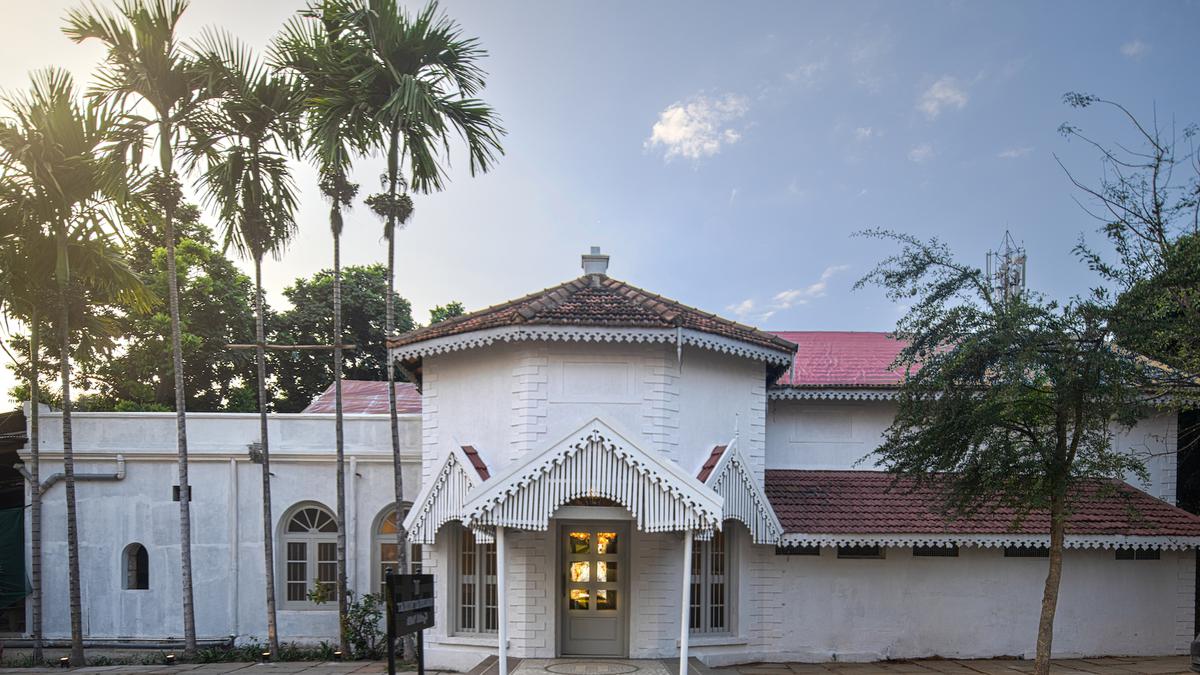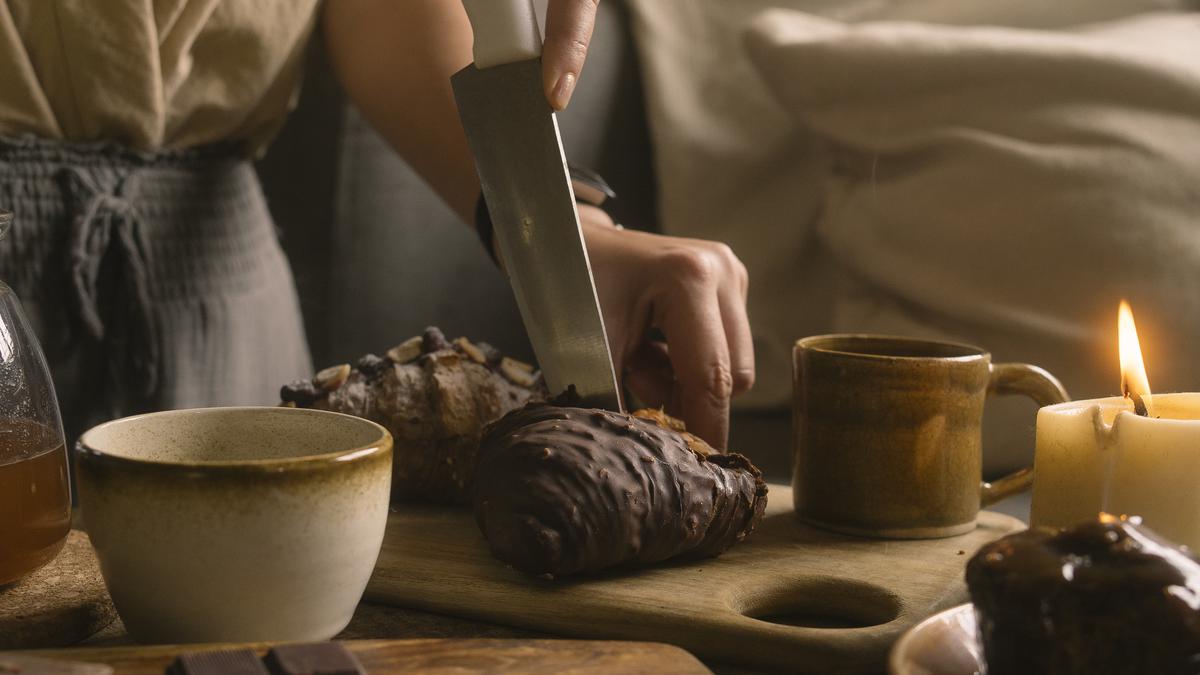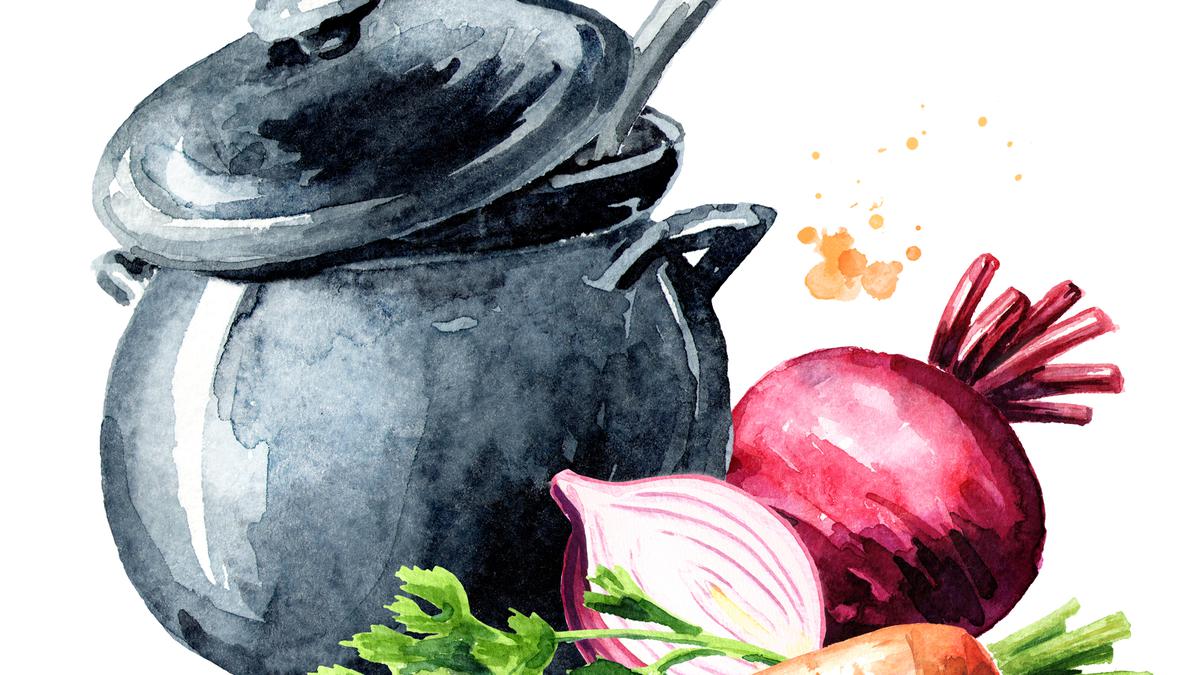Ten years after he ventured South with an outpost in Hyderabad, Tarun Tahiliani has opened the doors to his luxury address in Bengaluru. But unlike his most recent Mumbai store, which is in the Edwardian neoclassical style Ballard Estate, this one is a charming colonial-era “cottage” with those distinct monkey tops seen in a few Bengaluru neighbourhoods.
Tarun Tahiliani with Vinita Chaitanya
| Photo Credit:
Special Arrangement
Wooden and shaped like an inverted V with vertical slats painted white or green, these monkey tops are a fine detail from the early 1900s. The bungalows are fast disappearing due to neglect or redevelopment. “Even though I was less conversant with the Bangalore way of life, I wanted to find a space that suited,” the Delhi-based couturier explains, sharing how he found this ancestral home belonging to the Woodlands family thanks to interior designer Vinita Chaitanya. “I had one window, from 7 am to 8 am and by 7.45 am, I had set my sights on this building,” he says. “I just fit right in, even though it was such a mess. When I looked at the old terrazzo floors, it reminded me of my grandfather’s home where I grew up, on the seafront in south Bombay. It took a bit of time to work it out.”
Brides of 2023
“Bridal is taking a direction of weightlessness,” begins Tahiliani who has been successfully promoting lightweight wedding lehengas for a few years now. “I’ve seen many brides who are miserable and in pain for many days after they have worn their heavy clothes and never want to see that damn garment again. I think that is a real tragedy. We always encourage our brides to split the outfit afterwards and get three or four outfits that we are happy to do the coordinates for. If people want to start talking sustainable, this is the basic way to think.”
The designer opts for flatter embroidery work, with more depth and uses different techniques to achieve this. Innovation continues at a steady clip here, alongside traditional chikankari and kashida. “For me a certain lightness defines your spirit as well. Heavy doesn’t suit today’s way of life and what young people want.”
On the day of the launch, amidst glasses of bubbly and Chhau and Kathakali dancers in the courtyard, Tahiliani agrees that the challenging six-month ‘revival’ was well worth it. “Vinita was wonderful and a real guide. She sensitised me and helped me articulate my thoughts in the ideal restoration,” he admits.
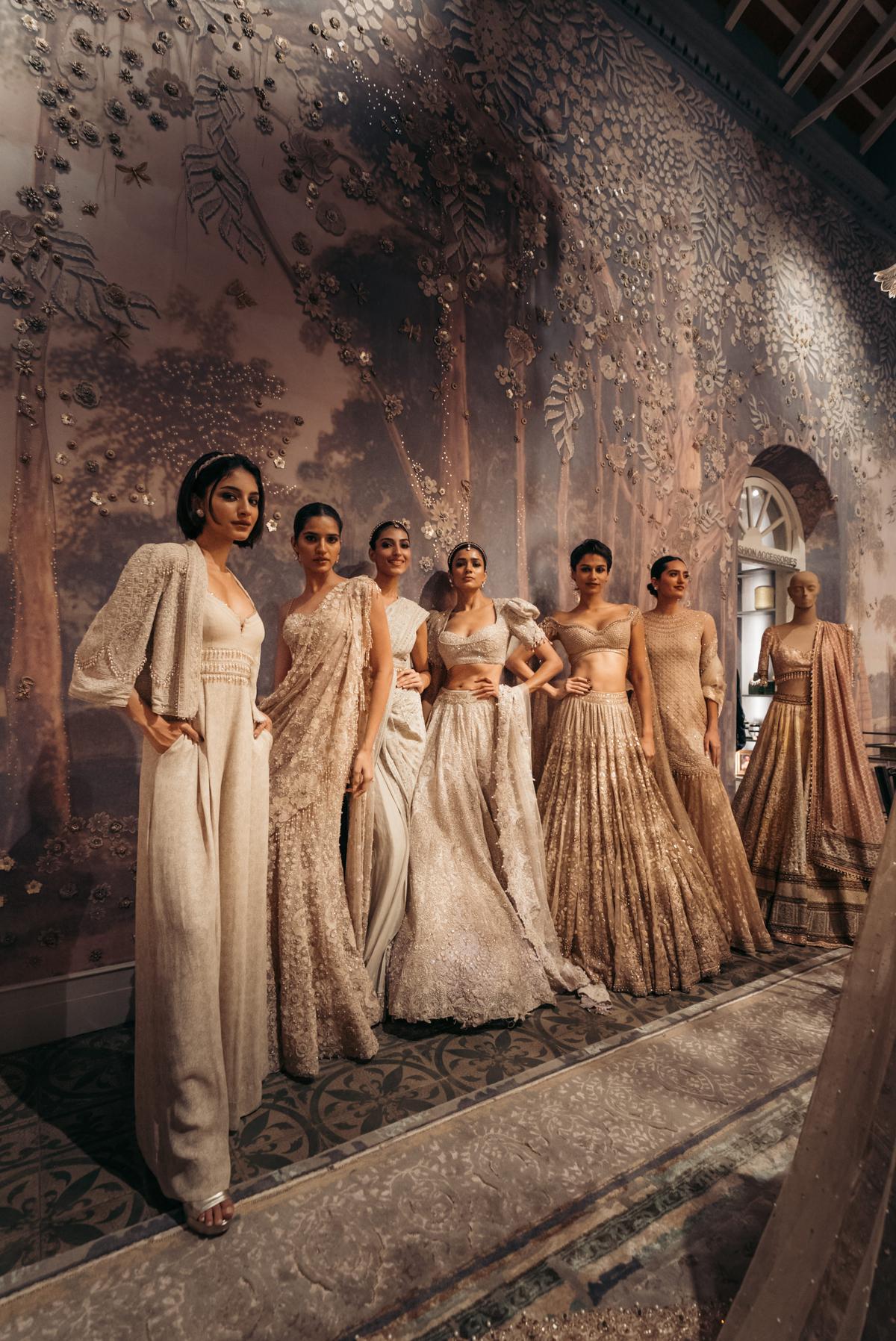
Models wearing Tarun Tahiliani creations
| Photo Credit:
Special Arrangement
Of course, with 25 years in the fashion business, he took it to the next level — the Obeetee carpets mimic the patterns on the flooring, hand cut abalone embellish the wainscotting in the entrance foyer, and the furniture is a mix of old and new. There are semi-precious mosaic table tops that complement each room. But the showstopper is a gently glittering large wall. It is where every guest stops to take a picture, against an enchanting tree of life that celebrates the design house’s craft. “I wanted to create a new trompe l’oeil with the wallpapers. Because our clothes are very finely detailed and not designed for Instagram impact, we used a lot of our wonderful couture techniques on this wall,” explains Tahiliani.
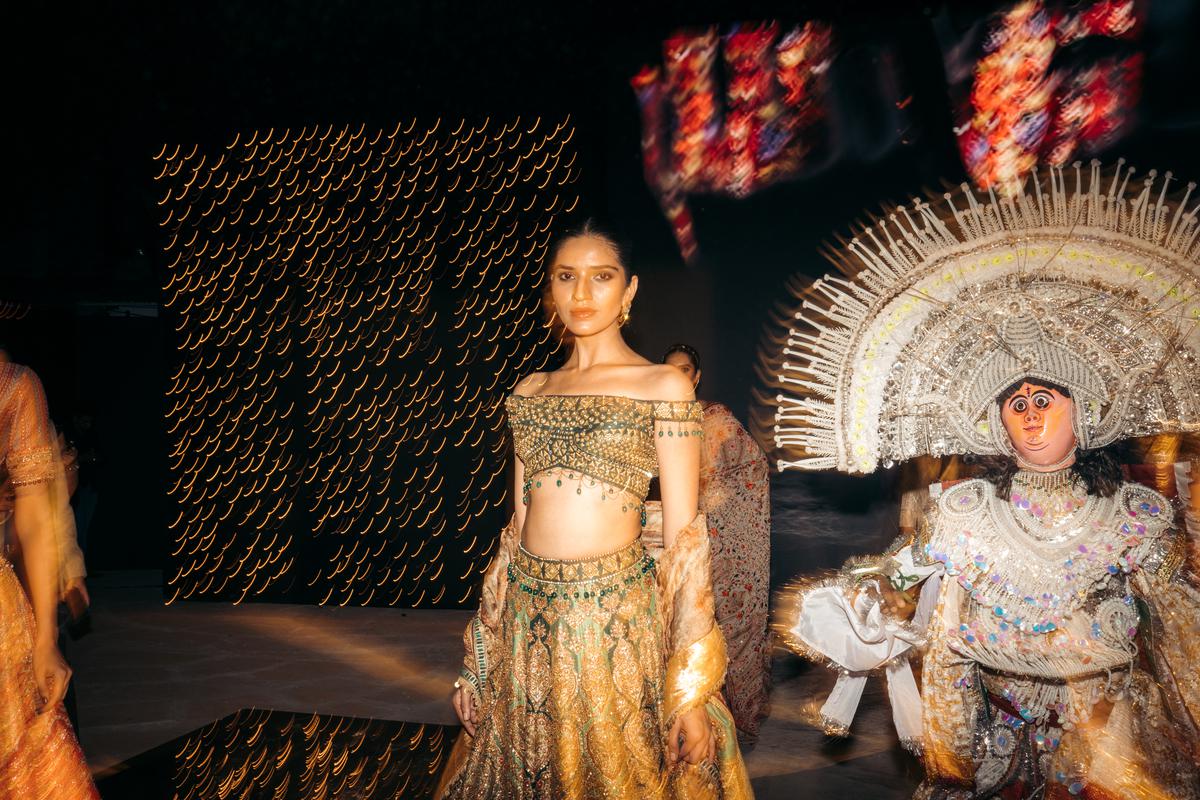
Despite the busy walls, and the trademark jaali screens bearing the Tahiliani monogram, the rooms have a monochromatic feel — it complements the designer’s India Modern bridal lehengas and saris. And his drape in jersey, voile, spun silk and Korean crinkle tulle.
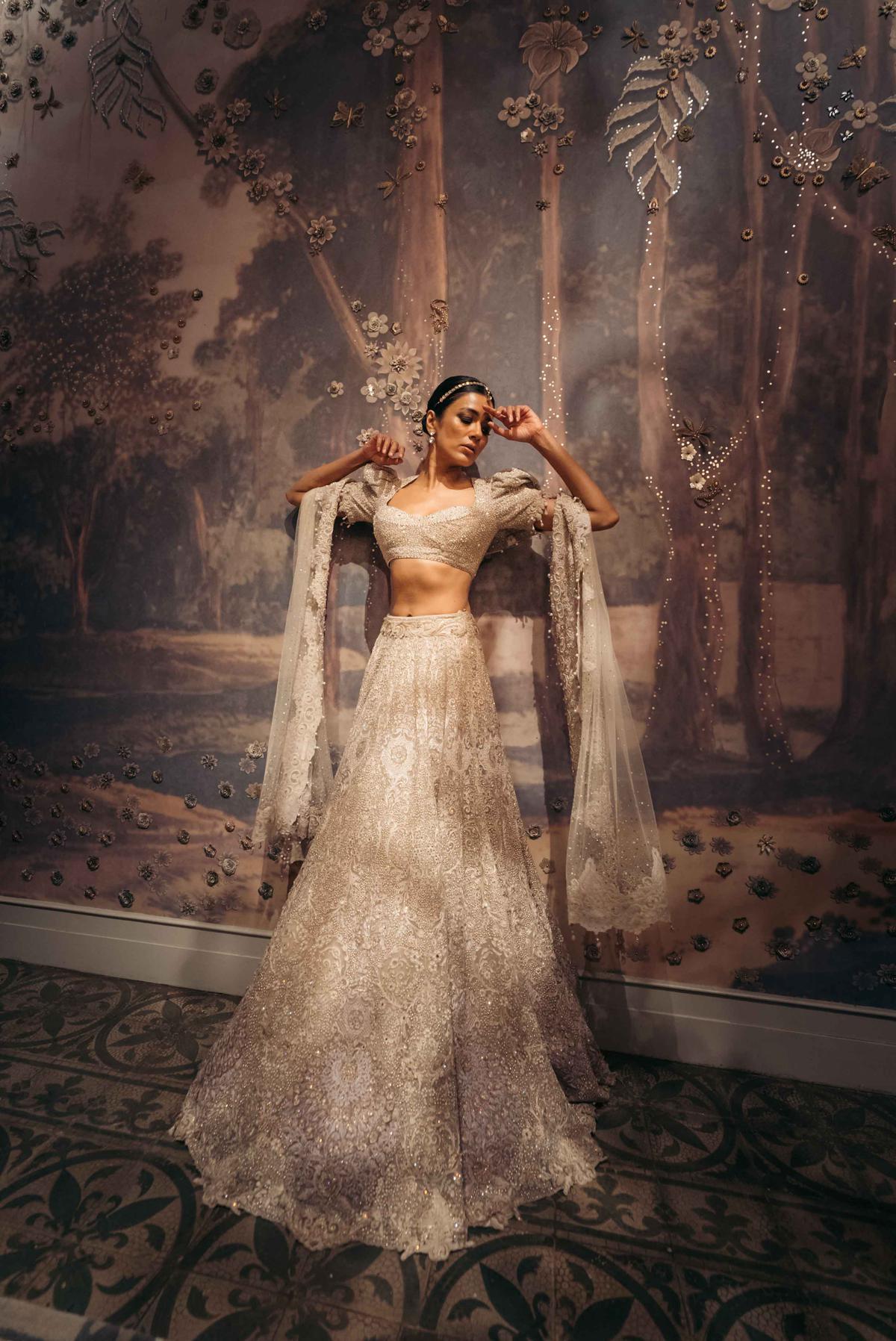
Tarun Tahiliani’s designs
| Photo Credit:
Special Arrangement
On the same page
“Tarun is very open, receptive and big-hearted with his friends,” says Chaitanya, who clearly enjoyed this collaborative effort even if she wasn’t the official interior designer of the project. “During the pandemic, we did two huge panels together, one was Islamic, one was for a Marwari client. Just discussing the threadwork and embellishments and sending those drawings back and forth for those projects, that got us close,” she says. At the launch, her cotton Tarun Tahiliani with heavy Kutch work was a nice contrast to the ivory-beige and primrose lehengas and saris displayed. “It is boho and dramatic, so me,” she laughs. “When I selected it, Tarun said it was one of his favourites and that no one seemed to really love it.”
The ensemble was sold thrice that evening.
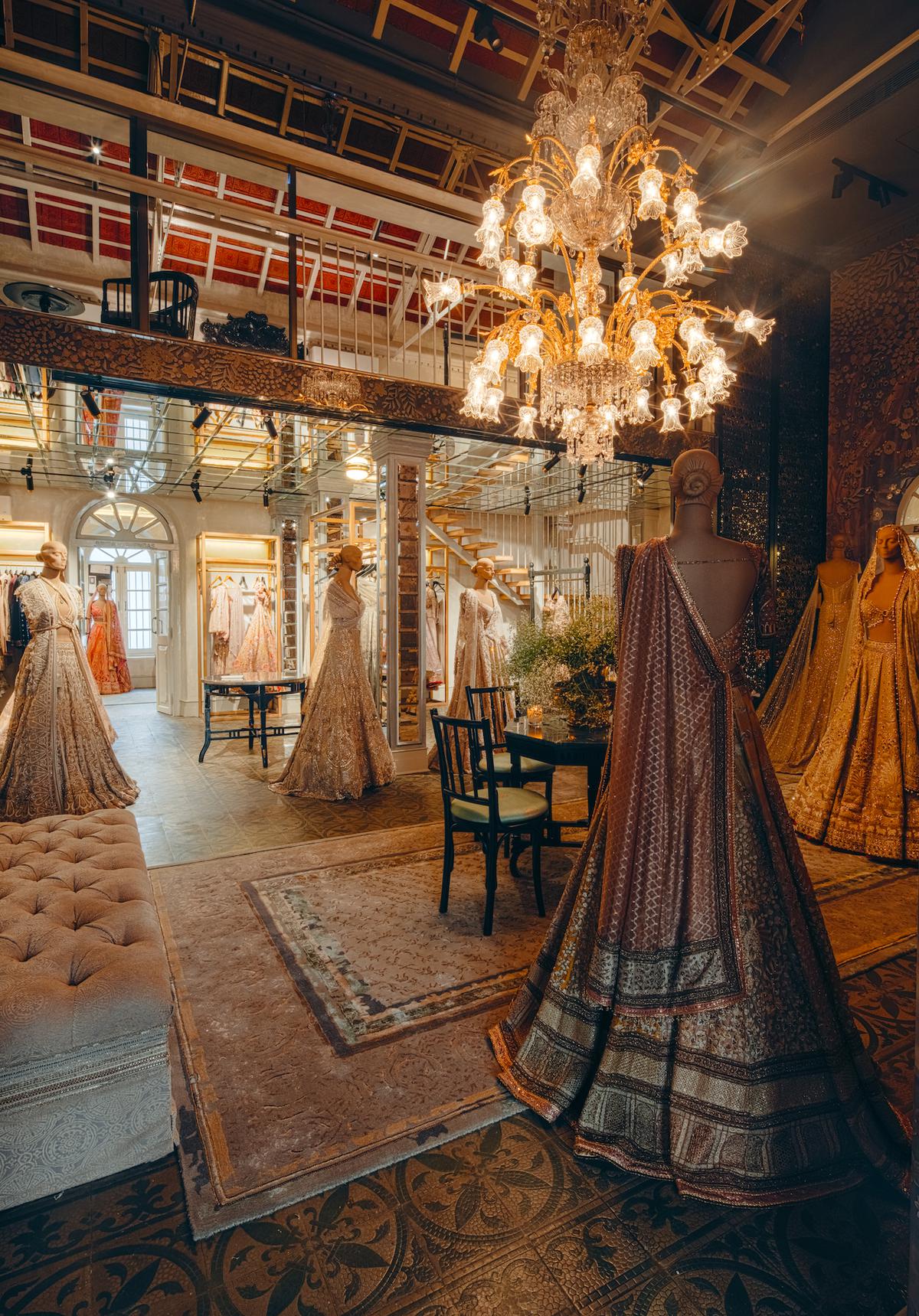
The high ceiling of the store accommodates a mezzanine appointment room
| Photo Credit:
Special Arrangement
When it comes to creating a luxury fashion brand, few Indian designers do it as meticulously as Tahiliani. That said, this year has also proved successful for Tasva, his affordable Indian menswear outing with Aditya Birla Fashion and Retail, where a kurta begins at ₹1,599. Tasva’s 25th store was launched in typical Indian wedding style last week in Mumbai. It is this easy interpretation of two different markets that we hope to see more of next year.
As for the Bengaluru store, it is a must-visit both for its heritage and fashion. “Luxury retail today has to be an experience, it has to scream the brand philosophy. It’s got to be sensorial. And it is within this cocoon that you put your clothes,” concludes Tahiliani.
The store is on Raja Ram Mohan Roy Road, Bengaluru. Silver jewellery and garments start at ₹ 12,000 and ₹ 50,000 respectively.
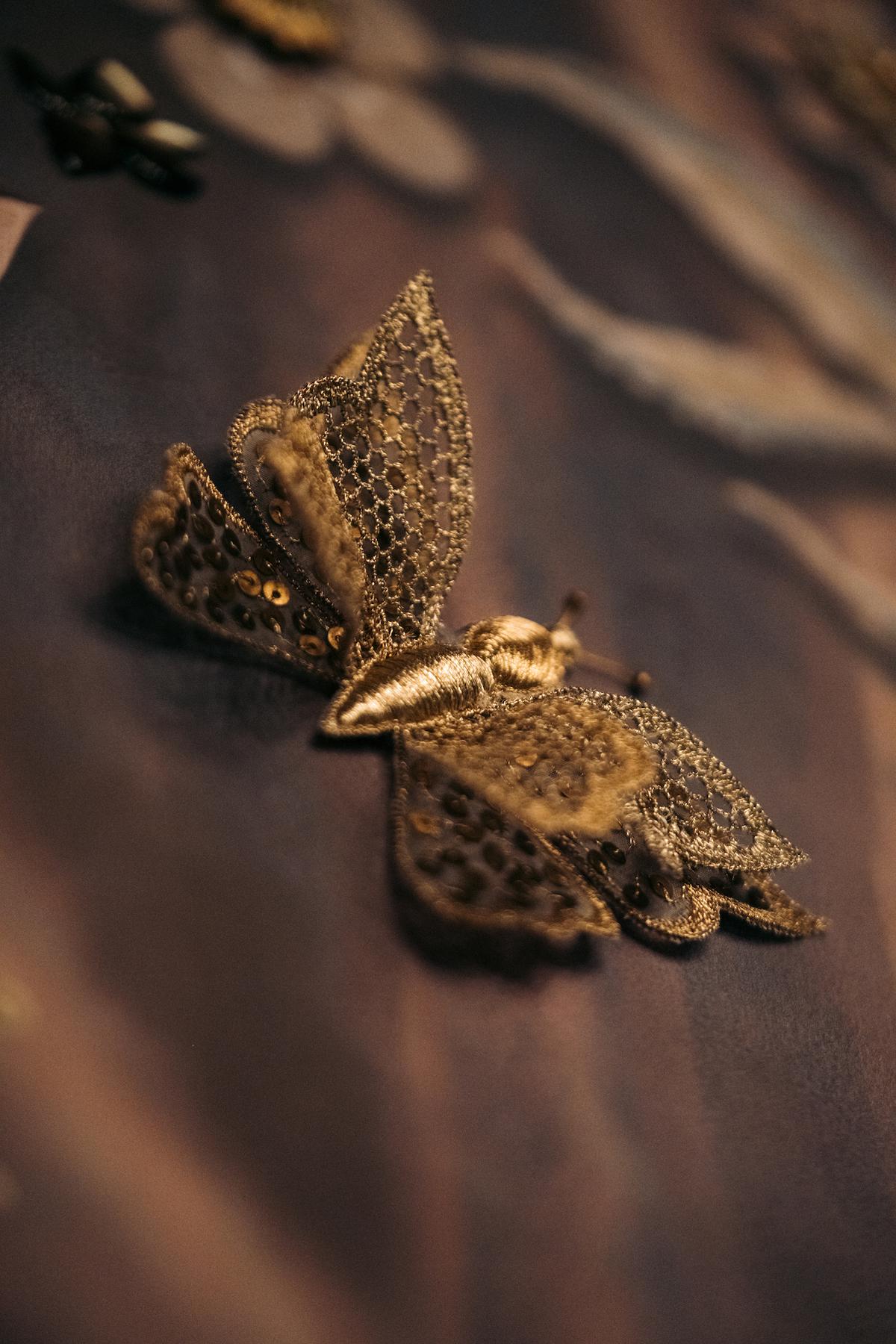
A wallpaper detail
| Photo Credit:
Special Arrangement
Jewellery and Shiva flowers
With its huge cannonball tree in the courtyard and spectacular chandeliers inside, this experiential store is full of little surprises. There is a different coloured terrazzo tile in each room. Hand-embroidered mirror clutches and brocade bags make for great gifts and there is silver jewellery for those fun destination weddings.


